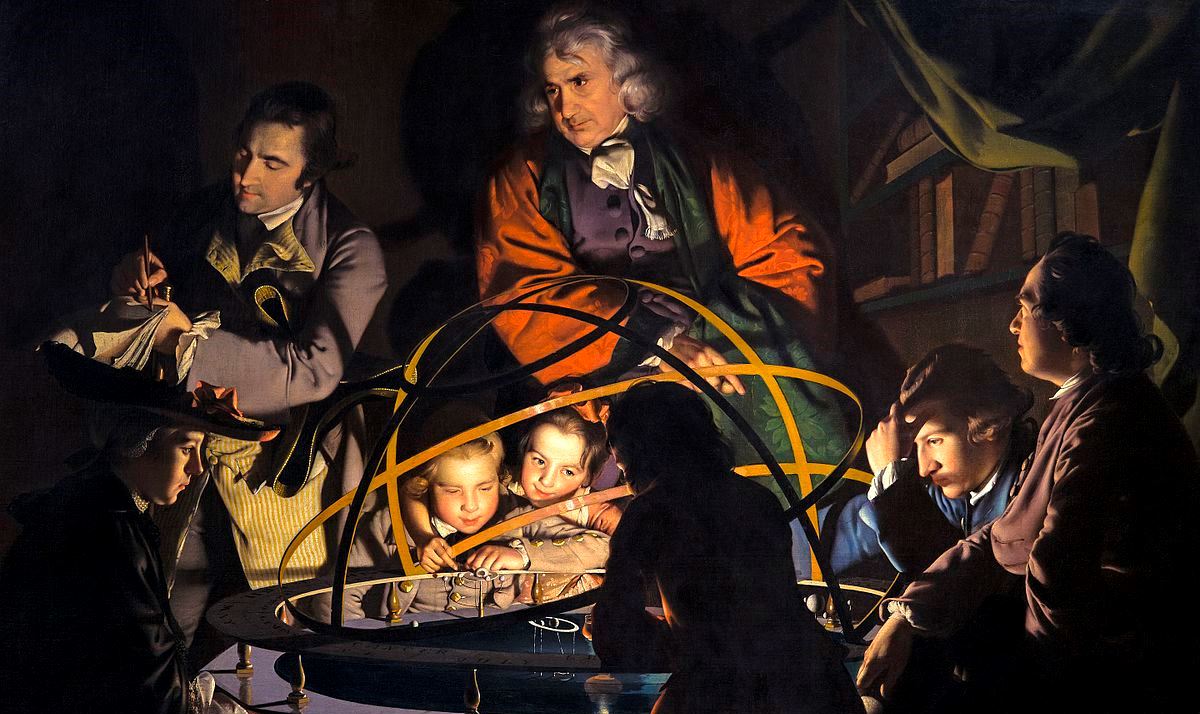.
Full Circle
From age to age how long the fray’s been fought
Tween those who seek the Truth on sacred ground
And those who wish to harness mankind’s thought
To what is measured, tested, proved, and sound.
Empiric minds pronounced the pious “fools,”
And promised nature’s Truth would yield in time
To scientific theses, laws, and rules.
For “nature’s but a sum, not one sublime.”
Of little learning did the poet warn,
But nature’s every puzzle solved in turn
Did swell empiricists’ pride, plus their scorn.
“Survey the Whole,” and Truth they would soon learn.
Till they divined that first celestial fire:
The Biggest Bang that bore all time and space.
They found no higher could their thoughts aspire,
And nature’s nature they would never trace.
Of this in humbled awe they speak in tones
That strangely echo ancient hymns and tomes.
.
.
Dennis McSweeney is a marketing consultant who lives in the Midwest. He holds an MBA from Northwestern University.















Never say ‘never’.
I enjoyed the spiritual-scientific debate in your extended sonnet, Dennis, down to the philosophical final couplet.
Thanks for the read.
The limits of science wonderfully exposed versus cosmic space. The hide-bound empiricist cannot fathom the inexplainable first mover concept and belief in the eternal. Beautifully composed.
Can you tell us what those limits are Roy? I’ve been looking for them a long time, TYVM.
Hi Bob, I’m not sure what Roy is thinking. For myself, I can say science is indeed very limited when looked at from a big-picture point of view. Why should someone continue living if life is mostly unpleasant and uninteresting? With so many wholes in Darwinian evolution, where did people come from? If someone is sure they won’t be caught, why should they not do something immoral? Where did the universe come from? These are huge, life-changing questions and science comes up very limited in answering them.
This is good, Dennis. I like the name of “empiricist” for those who might consider themselves scientists. You are correct that pride and scorn seem to be their distinguishing traits. These were not the vices of scientists from whom I learned physics. They pointed out that while physics studies nature, there is also metaphysics that investigates realms beyond those where things can be measured and tested. No need to “harness mankind’s thought” to the empirical realm alone. As you suggest, a “little learning” can be a dangerous thing hiding much truth from one who will not acknowledge its existence. And you are right again in that final couplet: those who find nothing sacred in nature, are likely to speak with religious fervor about knowledge achieved in natural science–even though relativity theories and principles of uncertainty are accepted in physics as limits on what can be known. It takes considerable logical and poetical skill to present the situation as well as you do in this brief poem.
I agree that this is very well done. I love the last two lines!
Hi Evan – Thank you for a most interesting reply! As the study and codification of the universe at the micro and macro level, I take science’s limitations to be of the same order of infinity as the universe. I think the limitations we are aware of are the limitations of our own ability to understand completely. Since the extent of our knowledge is the continuing contributions of enquirers over millennia, each generation building upon the knowledge gained by previous generations – like generations of masons adding bricks to the same wall, but the wall can never be completed – science is by definition an ongoing process of occasional successes overcoming frequent failures.
I believe there are conditions to question continued living, but uninteresting just can’t be one of them; the world is a fascinating place in every aspect, just look around your own immediate space. Further, I think we all have to bear a certain amount of unpleasantness in our lives so the question is the degree which one can bear.
I would point out that there are holes in many areas of scientific disciplines which is why the research continues to try and fill those holes and correct any errors in the previous findings. That is the heart of science definition.
Your morality question is worthy of discussion and debate, but not in science – in philosophy. Science can make no judgment on morals because it is wholly objective and morality is wholly subjective.
Finally, I concluded long ago that the origin of the universe may not be in the realm of science but rather of religion.